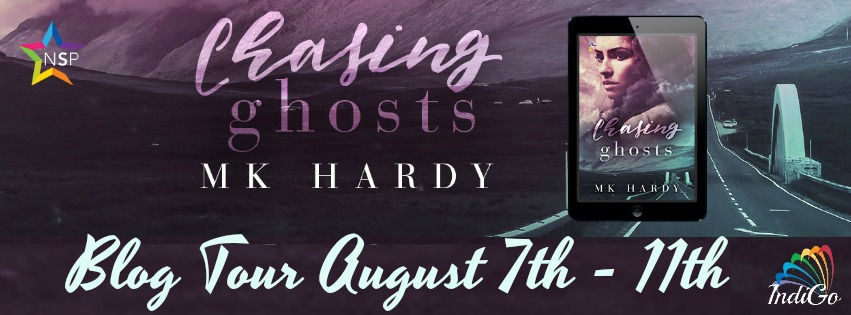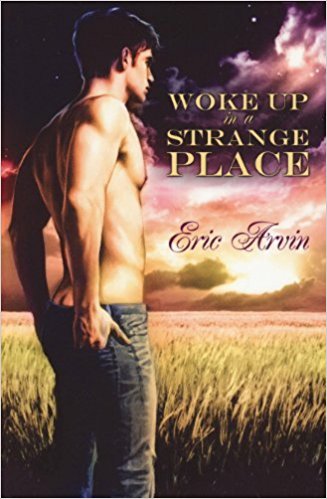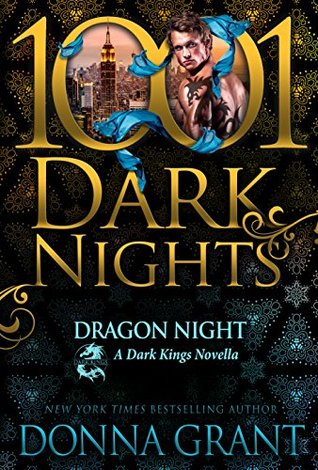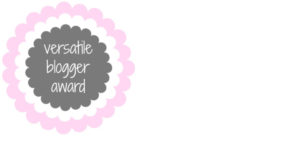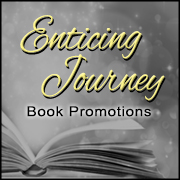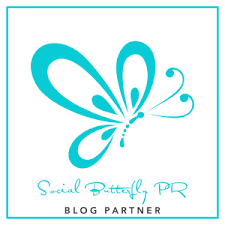Author: M.K. Hardy
Publisher: NineStar Press
Release Date: 8/7/17
Heat Level: 3 – Some Sex
Pairing: Female/Female
Length: 77600
Genre: Contemporary, contemporary, romance, addiction, drug/alcohol use, performance arts/visual, writer
Add to Goodreads

Synopsis:
Nic is a successful ghost writer, making a decent living churning out best-selling autobiographies of celebrities and other notable figures. She’s also a recovering alcoholic—three years sober and still tempted, every day, to open the bottle again.
Luckily she has distractions—this time in the form of Isobel DeWitt, an award-winning and well-loved actor in her prime, who has decided to release a tell-all autobiography. Nic finds her likeable, charming and fascinating…but also impossible to crack. Every draft sounds like just another magazine piece full of perfectly crafted sound bytes, but there’s no soul.
Undeterred, Nic continues to dig into the actor’s history in search of the clue that will unlock it all and finds it in the form of one Melody Graham, a reclusive playwright and, if rumours are to be believed, Isobel’s erstwhile lover. Nic chances everything to reach out to her and unbelievably she responds, sharing stories about her time with the tempestuous actress and helping Nic get further and further into Isobel’s head. The problem now is figuring out where Isobel Dewitt starts and Nic ends…
Excerpt:
Chasing Ghosts
M.K. Hardy © 2017
All Rights Reserved
Chapter One
“Hi, my name is Nicola, and I’m an alcoholic.”
Not much of a way to begin a story, is it? But as James, my agent, always says, “truth is what makes the story.” On the other hand, my sponsor Mary likes to tell me to “be honest with yourself and screw the rest of them.” Either way, you can’t get any more truthful than that, can you?
“It’s been two years since my last drink.”
I was sitting in a dingy church hall on a flimsy folding chair, surrounded by people who looked as if they’ve been chewed up and spat out by Fate like disused pieces of chewing gum on the pavement. Some of them couldn’t even bring their eyes up to meet the gazes of their fellow addicts. Instead, they focused on the streaked wooden floor, following the whorls and gouges with their bloodshot eyes. I didn’t recognize all the faces; for every regular there was a newcomer, who more likely than not would come for one, maybe two weeks before disappearing off the map in a haze of empty vodka bottles, never to be seen again. Sometimes on my weaker days, it made me angry to see them, knowing by looking at them that they wouldn’t be back next week, and hating them for being weak enough to succumb. Just like I wanted to.
You’re supposed to share your story at these meetings, but that wasn’t really why we were here, was it? You don’t want to hear my story. Nobody does. There’s a reason my name never shows up on the front jacket—why if you read between the lines of each tell-all memoir you won’t find me mentioned there. It’s because I’m very good at my job, you see. I can draw out even the most reluctant person, put their words, their life down on paper so that the masses can’t help but want to read it, and the supposed author can’t help but rake in the cash. So I hope you don’t mind if I just give you the bare highlights of my own life—my name might be all over this, but it still really isn’t my story.
The smattering of half-hearted applause at my testimony had stopped now, and I was talking again. I was sharing my experiences of the past week—the times I’d wanted to drink, the times I’d been glad of the clarity I now had… You don’t need the details.
The truth was I could do without the clarity. Clarity, if you ask me, is overrated. I wasn’t sober because it made me clear-headed or better able to deal with my day-to-day life—honestly, I was a high-functioning drunk. That’s the thing about a Calling—you don’t have to be sober to be able to do your job. I could write just as well—maybe better—when I was drunk. I met my deadlines, I made meetings when I had to, my cat never went hungry, and I was never the type to get into fights or wake up in a gutter because, like all good alcoholics, I drank alone, at home.
No, to be brutally honest, I got on the wagon because when I hit thirty I was starting to develop a slight gut, and that’s not attractive on anyone. And believe me, some days I wish I had just switched to gin and slimline, but here I am now and so here I stay. Never let it be said I don’t see a story through till the bitter end.
After the meeting finished, the group disbanded, drifting away from each other like autumn leaves pushed by a capricious breeze. There was a table set up with orange juice, tea, and biscuits; some of the newcomers lingered there, hoping to meet kindred spirits who would reassure them that everything’s okay and it’ll just get easier with time. The regulars knew better.
Me, I picked up my sleek black laptop bag and hoisted it over my shoulder, exchanging curt nods with a few people before heading for the door. I wasn’t in full Bitch Mode, which on a normal day meant I might stop and exchange pleasantries, but I’d got a meeting to get to across town and not a lot of time. Chances were I’d probably be late. Why didn’t I just skip the meeting, go to a later one, you ask. To which I reply: you’ve never been an addict, have you?
I grabbed a taxi as soon as I could, promising the driver a generous tip if he could get me to my destination by four o’clock. That’s the other thing about having a Calling—you can make plenty of money doing it. I have even more now that it doesn’t all go on booze and mixers, but it mainly just sits in my bank account or occasionally serves to entice cab drivers to get me where I’m going on time.
Don’t get me wrong. I’m not saying that what I do is necessarily what I saw myself doing when I majored in Creative Writing at college (you don’t really care where, do you?). My starry-eyed teenaged self thought I was going to be the next Kerouac, or the next Tartt, or at worst the next Stephen King. I think my younger self would probably want to knife me in my sleep if she saw me trampling all over her dreams of renown and accolade, making a tidy little profit without my name ever appearing on a single dust jacket.
It’s still writing, though. It scratches that eternal itch. And I’ll tell you what, it’s satisfying, in its own way—getting into someone’s head, finding their voice, putting their life into their own words when they can’t make that transfer from mind to page for themselves. I’m like a conduit—weirdly, I feel connected to them. It’s an addictive sensation in its own right, and I am, after all, an addict.
Some people go from vice to vice, trying to find something that fills in that emptiness. I knew a guy in the early nineties who, after nearly killing himself on a five-year bender, sobered up almost overnight only to begin falling into bed with a different person each evening. What alcohol couldn’t accomplish, AIDS did. When you look at it like that, my way doesn’t seem so bad, does it?
We got to the hotel at five past four—even though we were technically late, I still gave the driver his promised tip. It wasn’t as if he had any control over London traffic, after all. I slid out of the cab, barely looking around to check my surroundings before heading inside. I have a lot of meetings at hotels, so I’m well acquainted with them—the plush beige carpets, the myriad mirrors, the waxy, sunlight-starved pot plants. These initial meetings are always in the bar, so perhaps it’s unsurprising that I ended up the way I did. Liquor is a natural lubricant; it gets peoples’ tongues wagging. Even now, hours before dinner time, the bar was half full, cluttered with businessmen soothing their jetlag with a pint of ale, nervous tourists tittering over a glass of merlot.
I caught sight of myself in the mirror behind the bar. It’s a rule, in writing—you have to tell the reader who they’re looking at. Never mind the picture on the cover, they want to be reminded of the sparkling blue eyes, the crisp white smile, the smooth, even tan. And you won’t be seeing my picture, so I suppose I ought to lubricate my own descriptive skills with a bit of introspection. Not that I’m going to tell you what you want to hear.
See, unsurprisingly I guess, I’m about as ordinary-looking as it gets. I’m about average height, maybe a little over but not enough to be tall. I’m average weight—maybe a bit extra on the hips and thighs from time to time; it comes and goes. My eyes and hair are a mid-brown that’s neither particularly drab nor particularly inspiring—my hair pretty much lives in a perpetually slightly dishevelled ponytail. I’m the kind of pale that you only get by staying indoors most of the time, summer or winter, and only holidaying to northern European cities that don’t require you to wear sunscreen or mosquito repellent. My wardrobe is mostly brown, black, and navy. I don’t wear rings and my ears aren’t pierced. I’m basically the definition of a cipher.
I didn’t start out that way—I am told by reliable though biased sources that I was a very pretty little girl. And I went through all the normal teenage rebellion phases—heavy eyeliner, dyed hair, outrageous clothes (though who could live through the eighties and not claim fashion victimhood?). But somehow, I ended up like this: a plain Jane, nondescript and unmemorable. Maybe it’s the exterior reflecting the interior, since my job is more or less all that defines me these days. Or maybe it’s just that spending so long in a drunken, intensely personal, and yet wholly impersonal haze erased all desire for self-expression. But if that’s the case, why am I writing this? I honestly don’t know. You tell me.
The woman I was there to meet wasn’t hard to find. Unlike me, she was well-known enough to create a bubble of impermeability around her, one which no tipsy tourist or errant waiter was likely to overstep. And even if they didn’t know who she was, she was striking in a way that caused people to stop and stare rather than come too close. And as used to celebrity as I am, I’ll admit I hesitated for a moment before breaching that no man’s land and approaching her table.
“Ms. Dewitt? Nicola Booth. Sorry I’m late.”
“Oh, are you?” she said politely, in that tone where it was obvious she’d noticed and was pretending not to—which I hate, by the way.
“Yep,” I said, tamping down the urge to roll my eyes as I took a seat opposite her at the table. Lord, save me from the well-meaning ones—give me a stone-cold bitch any day. They’re so much more fun. “Anyway, I’ve just got a few questions before we get started. I assume your agent told you what I’ll be doing?”
“Well, I know what a ghostwriter does, of course, but I’m sure you all have your own methods…”
“Sure.” I sat back in my chair, nodding a little. “A lot of writers like to pore through articles, past interviews, watch appearances on Jay Leno, that sort of thing. Really bumps up the research fee.”
She raised an eyebrow—just the one. You know how in books everyone can do that? I’ll tell you what, not everyone can do that. “And you?” she said in this arch tone and I’m not sure whether it’s getting my back up or turning me on a little.
Not wanting to give her the satisfaction of watching me jump through any of her little hoops, I turned a little, motioning for the single waiter who’s loitering by the bar. He hurried over, more for her sake than mine, I knew, and I ordered a mineral water with lemon before looking back to Ms. Isobel Dewitt with all her arched eyebrow and perfect lips.
“I like to talk.”
“To talk.”
“Mm. I mean, yes. To talk. You’re supposed to be telling your life story, right? So the best way to do that is to… talk about it. To me. I’ll record it, take notes, ask questions…and then I’ll whisk it all away and transform it into a bestselling account of your life.” Maybe it sounds conceited, but trust me, it’s true. I have never failed to turn out a book that exceeded the publisher’s expectations, and I’ve even helped a few minor celebrities to climb the social ladder to better recognition.
The great Isobel Dewitt pursed her perfect lips and tossed her perfect hair and relaxed back in her chair with a nod. “All right. So when do we start?”
Well. This is it, then. “We can start right now,” I told her, leaning over to pull my recorder out of my bag, then set it on the table between us. No time like the present. “Let’s talk about what you want out of this book.”
Exclusive Content:
Interview 2
What’s harder, naming your characters, creating the title for your book or the cover design process?
K: Definitely the book title for me! I love naming characters and can usually get a pretty good idea of what I’d like the cover to look like while writing it, but titles are hard. Especially since we tend to pick a pithy phrase or quote to title it to start with and then realise it won’t actually work for a published novel… ‘Corsets and Camels’ comes to mind. Chasing Ghosts was originally called Ghostwriter, but we figured there might be some confusion with that oh-so popular 90s kids television show.
M: Yeah, finding titles for our books before we’ve pitched them has been hard! The cover I felt a little apprehensive about because one of my day job hats is designer, and there’s trust involved in letting someone else take that on. But the process ended up being very positive due to the talent and great communication at NineStar!
How do you answer the question “Oh, you’re an author…what do you write?”
M: No one would ever ask me that question! I don’t describe myself as an author. K and I have been writing so long, and we’ve always written for its own sake – it’s part of our relationship, like date nights or walking the dogs or eating dinner together. The fact we’ve produced complete stories is great and I’m excited to be published but it was never my ambition – well, not since I was little, in between ‘Vet’ and ‘Art teacher’! Maybe I’ll be able to get back to you on this if we publish more of our work.
K: Whereas I have always had dreams of being an author! (Also a vet). Usually when people ask I get very dismissive and say “oh it’s just trashy lesbian romance” but after a pep talk from my brother of all people I’m going to stop downplaying it so much. After all, some of the books that have brought me the most joy have been romance novels!
M: Never an art teacher? Is that just me?
K: Nope. You’ve seen me draw – no one wants me teaching their kids that.
What does your family think of your writing?
M: Hahahahaha.
K: As I said above, my brother has actually been one of the most supportive people I know once he found out! I’m still not letting him read any of it, though.
M: Honestly, my family would make fun of me. They’re great and all, but there is no part of “We’re getting our co-written romance novel published” they wouldn’t find amusing. They’re mostly very serious professionals. I’m not even sure what they do for fun. Maybe gardening? Gardening for me happens when the thistles and weeds are so tall the dogs won’t go into the yard to poop any more. So y’know, live and let live.
K: Classy. Now I’m not letting my brother read this interview, either.
Tell us about your current work in process and what you’ve got planned for the future.
K: ‘Tell us about your current work in progress’ – which one? We’ve got a couple of existing manuscripts that we need to dive back into and rip apart based on feedback, a couple of unfinished stories that really need capped off, a short story competition we really ought to do something for and a slowly-evolving scifi story that will need some proper attention eventually. Whew. No pressure though.
M: The sci fi story is a somewhat ‘Catch Me If You Can’ style affair with a bounty hunter and her mark ending up stranded in unfamiliar space. They’ve just found a mysterious floating wreck. I have no idea what’s going to happen except that there will presumably be shagging at some point.
K: Sharks.
M: I don’t think-
K: When in doubt, add sharks.
M: I don’t know if-
K: And shagging.
Do you have any advice for all the aspiring writers out there?
M: I’m not sure I have any good practical advice. Oh! Other than read a whole ton. I hardly read anything these days, but I used to, and I need to get back into it because my writing’s suffering for it.
K: I agree with that! Reading a wide variety of genres and authors is probably the best way to lubricate yourself up for writing something yourself – both to expose yourself to lots of types of inspiration but also so you can start to look at how stories are told.
M: And stories are told in loads of different ways, of course! Though I read less than I used to I still watch a lot of movies and TV, and they have just as much to teach about storytelling, about good character development, narrative arcs and flow, developing interpersonal tension, and about writing good dialogue. They can’t teach you about great descriptive prose of course – for that you’ll need good ol’ books.
Purchase:
NineStar Press | Amazon | Smashwords | Barnes & Noble | Kobo
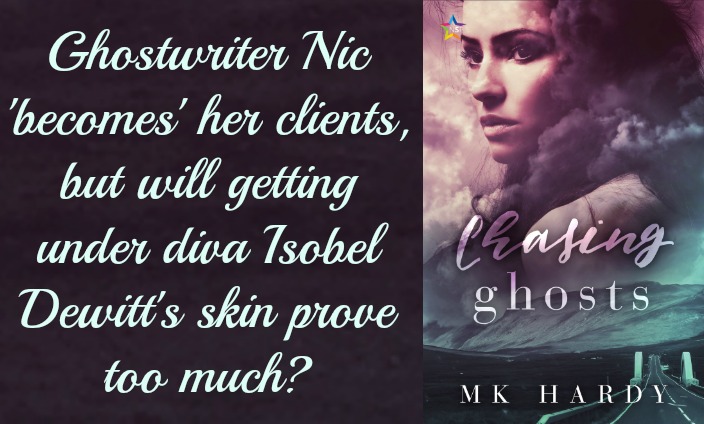 Meet the Author:
Meet the Author:
MK Hardy is the pen name for two geeky women living and writing together in Scotland. They’ve been writing partners for eleven years and life partners for nine. When they’re not typing frantically at one another they like to walk the dogs, cuddle the cats, drink cocktails and play boardgames.
Facebook | Twitter
Tour Schedule:
8/7 Divine Magazine
8/8 Wicked Faerie’s Tales and Reviews
8/8 My Fiction Nook
8/9 MillsyLovesBooks
8/9 A Book Lover’s Dream Book Blog
8/10 The Novel Approach
8/11 Scattered Thoughts and Rogue Words
8/11 Happily Ever Chapter
Giveaway:

